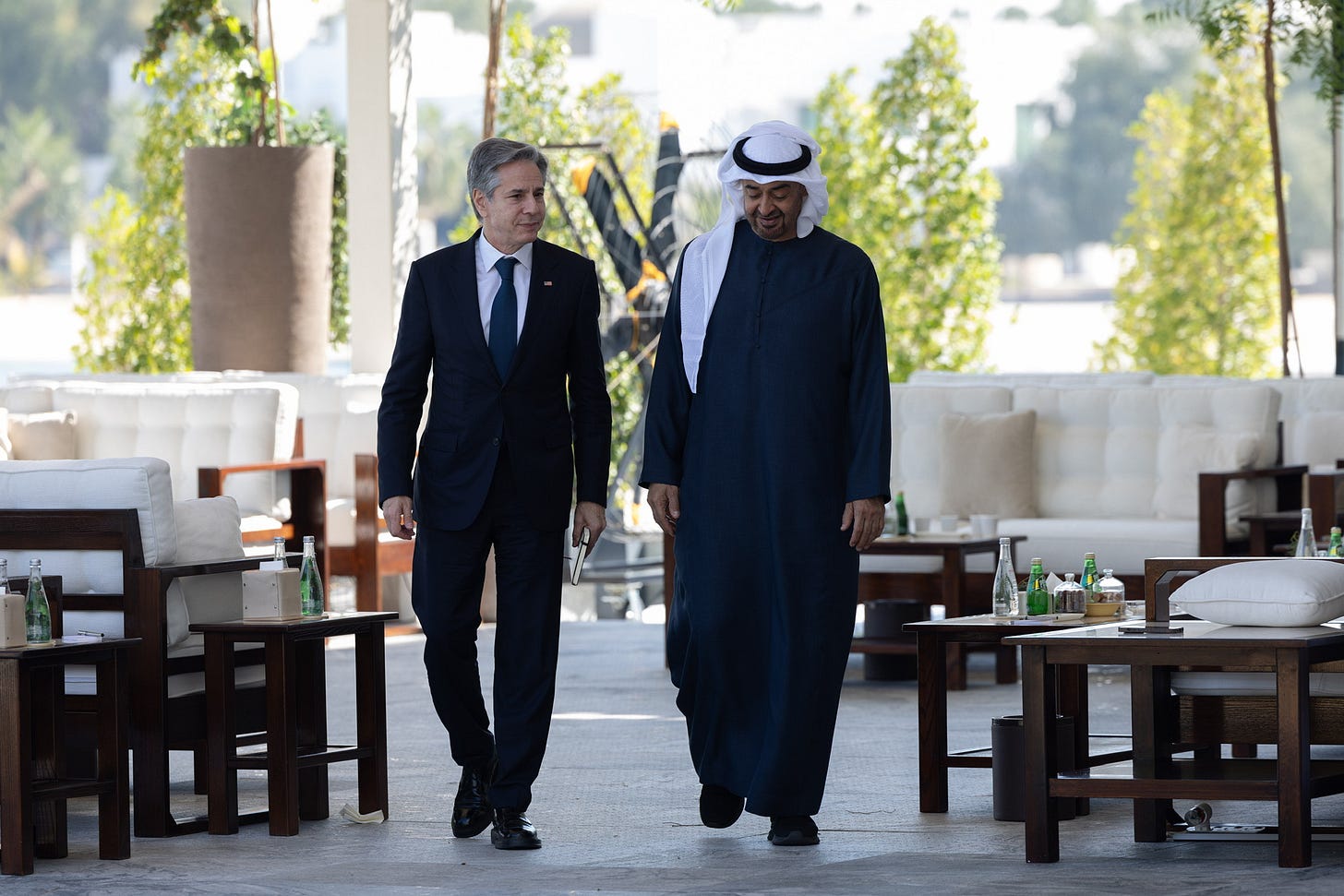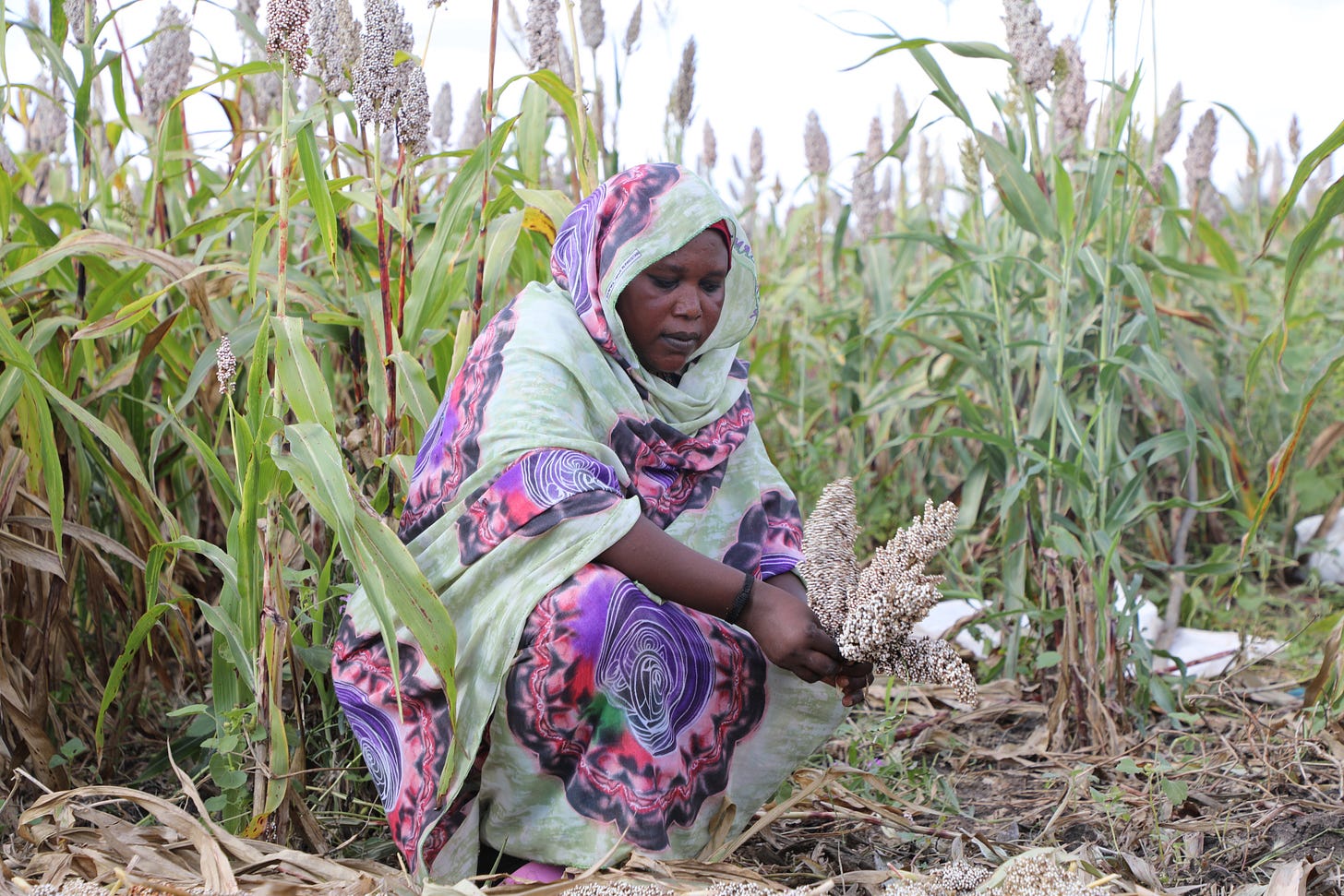Think tank: Pressure from Emirates could pull Sudan back from edge of abyss

International Crisis Group, a think tank studying global conflicts, says that the two sides to Sudan’s conflict might agree to a ceasefire if they came under increased pressure from their international backers, including the United Arab Emirates (UAE), which has supported the Rapid Support Forces politically and allegedly also militarily.
The policy group called for “a major, coordinated, high-level diplomatic effort involving the outside powers that wield the greatest influence in the region,” while noting that diplomatic efforts thus far are disjointed and so far a failure.
In its policy paper published yesterday, Crisis Group said that the Emirates “will likely be central to any effort to get Hemedti [the RSF leader] to opt for peace.” Likewise, pressure from Egypt will be critical to getting the Sudan Armed Forces leader, Abdel Fattah al-Burhan, to sign a deal.
The United States government, which co-facilitated previous rounds of ceasefire talks, should signal to the Emirates, Saudi Arabia, and Egypt that the matter is a priority, according to the International Crisis Group (ICG):
Sudan sits at the edge of a precipice… (yet) both sides have reason to halt the fighting. If their key backers were to push them, urged on by regional powers and the U.S., steps to at least halt Sudan’s nightmarish downward spiral may be in reach. Several pieces would need to fall into place, however, ideally including Washington communicating to its partners in Abu Dhabi, Riyadh and Cairo that peacemaking in Sudan has risen up its list of priorities.
USA has strong relationships with all of these countries, so it could hypothetically “corral the major regional players so that they are all pushing the belligerents toward a cessation of hostilities” However, ICG explained that so far Sudan is not a high-level priority in Washington itself, saying that American diplomacy “has failed to meet the moment.”
One problem is that within the American foreign ministry, known as the State Department, the Sudan file is handled by the Bureau of African Affairs, which “wields little influence with three key players in the crisis—Egypt, Saudi Arabia and the UAE.” Relationships with these nations instead are handled by the Bureau of Near Eastern Affairs.
Despite committed efforts by the [African Affairs] bureau’s leadership, this arrangement creates structural challenges that impede U.S. effectiveness… This problem could be fixed through appointment of a senior envoy… But the State Department opposes such an appointment, and the White House refuses to force the issue, consistent with what has at times seemed a dispiritingly hands-off approach to the crisis.
ICG forecast that the United States might be “too distracted or squeamish to deal with the messy endgame in Sudan.”
“Far more urgent diplomacy is needed. Sudan’s collapse could reverberate for decades throughout the Sahel, the Horn and Red Sea regions. The window to avoid that outcome is closing.”
Under these circumstances, it will fall to East African leaders to try to fill the void, supported by the UN’s new envoy, Ramtane Lamamra, and European embassies that have good channels to both the East African stakeholders and the Middle Eastern ones, according to International Crisis Group. If diplomatic efforts fail, Sudan could “pass the point of no return, leaving a failed state that could take decades to repair.”
Anthony Blinken, the US Secretary of State, did raise the Sudan issue with the UAE president during a meeting Monday, according to a readout published by the State Department. But no details were provided, nor any joint position announced. Commenting on this news, Cameron Hudson, a former U.S. National Security Council staff member, stated, “The US-UAE bilateral agenda is crowded and complicated. The fact Sudan came up is significant but not sufficient.”
Nicholas Coghlan, a former Canadian envoy to Sudan, said he didn’t expect the U.S. to pressure the UAE very much over its support for the RSF, because of competing priorities: “It's good that the U.S. is raising bilaterally the UAE's destructive role in Sudan… others should do likewise. But in the current situation in the Middle East, Washington can't go far—the UAE hold too many cards.”
Photo of the Day
The photo shows Halima Abakar, a farmer and mother of eight from Abu Hujar locality, Sennar State. She received sorghum seeds as part of a seed distribution campaign conducted by the UN Food and Agriculture organization with the support of USAID. She successfully cultivated 5 feddans and expects to harvest 15 sacks of sorghum.
Sennar State is threatened by conflict, following the RSF takeover go neighboring Jezira State last month.
In brief
SPLM-North, led by Abdel Aziz al-Hilu, has agreed to meet with the civilian anti-war coalition known as Tagadum, and proposed an agenda for discussion.
RSF troops allegedly shot at a crowd of civilians Tuesday in the town of al-Ma’iliq, which is halfway between Khartoum and Wad Madani, killing one civilian and injuring others, according to Emergency Lawyers.
RSF soldiers claimed they downed a drone in Khartoum yesterday:
A fight between members of the Rapid Support Forces resulted in the killing of two troops in Arkaweet neighborhood of Hassahissa in Jezira State, according to the Hassahissa Resistance Committees.
Leaders of two Darfur armed groups, Al-Tahir Hajar (GSLF) and Al-Hadi Idriss (SLM-TC), have arrived back in El Fasher, North Darfur, following international travels. Sources affiliated with the two movements denied rumors that they intended to negotiate the evacuation of the army garrison from El Fasher. Both of these leaders were expelled from the Sovereignty Council by SAF Commander-in-Chief Abdel Fattah al-Burhan, after they refused to take sides in the ongoing war.
The International Food Policy Research Institute has published a research paper about the impact of the war on smallholder farmers, based on a survey of thousands of farmers. Among the conclusions: “The most notable challenge that prevented farmers from planting was the lack of finance to buy agricultural inputs such as seeds and fertilizers or to hire farm labor. The cost of inputs, especially improved seeds, is… (now) higher for most farmers across the country.”
Fighting in the Kadroo area of Khartoum Bahri resulted in several deaths among combatants on January 8, according to videos from the area. Fighting also has intensified in central Omdurman; we will publish a map with more details soon.
As reported by Ayin (report in Arabic), thousands of cancer patients face an unknown fate after the closure of the National Cancer Institute in Wad Madani, which treated not only local patients but also many patients who had fled fighting in Khartoum. The cancer statement shut down last month after the Rapid Support Forces attacked and pillaged the city. Only one hospital in Sudan still provides chemotherapy and and hormonal treatment services: Merowe Medical City.


